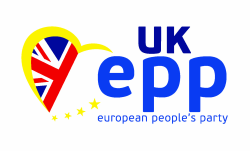“In 1914, the Durham Union Society had the foresight to push for women to have the vote - fourteen years before the UK finally embraced universal suffrage. By challenging the thinking of the day, this Union recognised the need for change. In 2014, we must again have the courage of our beliefs and resist populist politicians peddling fear: exposing the myths and distortions that are designed to divide and rule”, noted Hazell: “Instead, we should bring people together: uniting our means and efforts to achieve greater strength, resource, prosperity and security.”
“Every person has a unique spiritual value. Everyone should get a fair crack at fulfilment, with help for the vulnerable. Our youth deserves the best possible educational and training opportunities, securing and then flourishing in good jobs. People should be free to work at home and abroad, achieving their full potential without needless bureaucratic interference. The retired and vulnerable in our society should be free to live in dignity and safety. Europe - not fear peddling demagogues - is the hope for this achievable and positive future”, urged Hazell.
“Europe needs courage, not fear. Two days ago (29 Oct), Michael White warned in The Guardian that ‘increasingly fractious and enfeebled, our politicians may drift into an EU breakup just as, 100 years ago, we drifted into war’. With Russia testing European unity over Ukraine, and the self-proclaimed Islamic State recruiting in Europe’s cities, now is the time for Europeans to stand together”, said Hazell.
As to the tectonic shifts shaking up United Kingdom politics during the last five years, Hazell warned: “By bringing Britain to the brink of Brexit in a desperate effort to appease UKIP, the Conservative Party places party politics ahead of the national interest. British PM David Cameron’s Bloomberg speech in January 2013 has failed to bridge the ever widening split in the Conservative Party over Europe.”
“In 2011, the European Union Act was passed to ensure that the British people can vote on any future major transfers of powers from the UK to the EU. The so-called ‘Referendum Lock’ provides the chance to campaign for Britain to be at the heart of Europe once everyone knows what is on offer. At the time, William Hague wrote ‘this law hands back democratic control of the way the EU is developing to the British electorate’ and ‘means being positive and proactive about what European countries can achieve together through the EU’”, explained Hazell.
Hazell concluded: “In our interconnected world, no nation is an island. Through shared values and by sharing sovereignty, our local communities, cities, regions and nations can combat global challenges - such as climate change, and the growing gap between rich and poor. Whilst we cannot recover the past, clearly the future is ours to lose or win. By working together within the EU, we can shape a better future free of fear.”
Following the debate, members of the Union heavily defeated the Motion.

 RSS Feed
RSS Feed